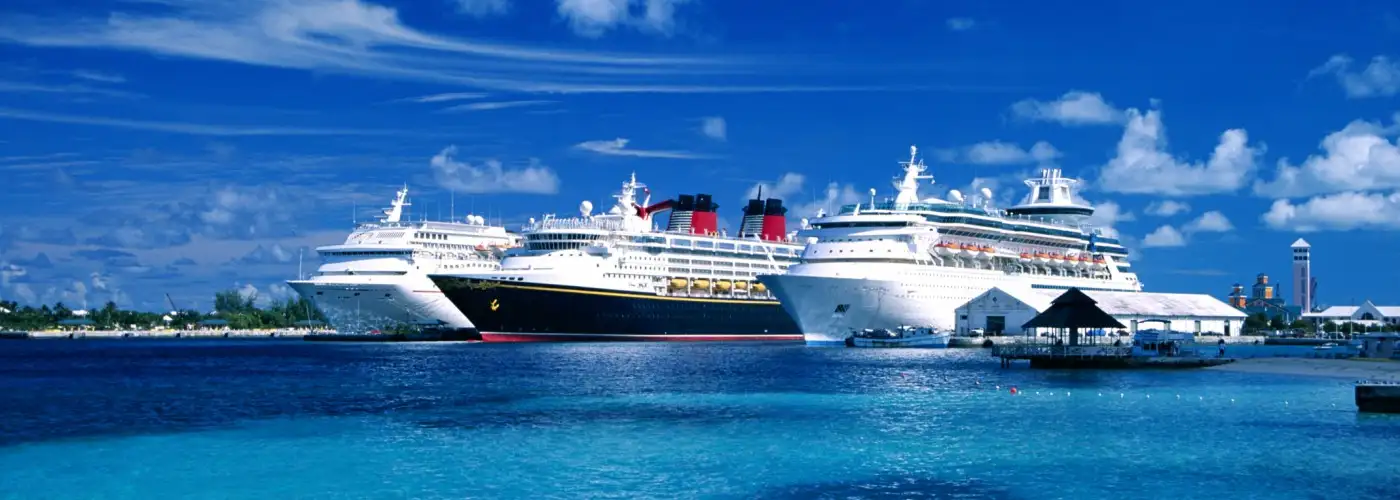On Monday, a ship fire caused Royal Caribbean’s Grandeur of the Seas to abort its planned itinerary and head for the nearest port. After canceling the remainder of the ship’s seven-day cruise, Royal Caribbeean arranged accommodations for Grandeur‘s passengers, where necessary; arranged flights from Freeport back to Baltimore, where the cruise originated; and offered passengers full refunds plus certificates for future cruises.
Most of us would agree that Royal Caribbean’s response was fair and reasonable, given the circumstances. But this was an ad hoc company decision, not a fulfillment of contractual or regulatory requirements. And cruise lines aren’t always as responsive when something goes wrong. Passengers on cruises that encounter problems often get unsatisfactory compensation.
A few days prior to the fire, the Cruise Lines International Association (CLIA) announced a new “Cruise Industry Passenger Bill of Rights” that addresses some of the consumer issues that arise when something on a cruise goes amiss. This bill was immediately adopted by all North American members. Here’s the full bill, as posted:
The Members of the Cruise Lines International Association are dedicated to the comfort and care of all passengers on oceangoing cruises throughout the world. To fulfill this commitment, our Members have agreed to adopt the following set of passenger rights:
- The right to disembark a docked ship if essential provisions such as food, water, restroom facilities and access to medical care cannot adequately be provided onboard, subject only to the Master’s concern for passenger safety and security and customs and immigration requirements of the port.
- The right to a full refund for a trip that is canceled due to mechanical failures, or a partial refund for voyages that are terminated early due to those failures.
- The right to have available on board ships operating beyond rivers or coastal waters full-time, professional emergency medical attention, as needed until shore side medical care becomes available.
- The right to timely information updates as to any adjustments in the itinerary of the ship in the event of a mechanical failure or emergency, as well as timely updates of the status of efforts to address mechanical failures.
- The right to a ship crew that is properly trained in emergency and evacuation procedures.
- The right to an emergency power source in the case of a main generator failure.
- The right to transportation to the ship’s scheduled port of disembarkation or the passenger’s home city in the event a cruise is terminated early due to mechanical failures.
- The right to lodging if disembarkation and an overnight stay in an unscheduled port are required when a cruise is terminated early due to mechanical failures.
- The right to have included on each cruise line’s website a toll-free phone line that can be used for questions or information concerning any aspect of shipboard operations.
- The right to have this Cruise Line Passenger Bill of Rights published on each line’s website.
These are all good ideas—although, for the most part, they are ground rules that cruise lines were already implementing when they could. So what’s not to like?
The glaring omission is obvious: These “rights” have no teeth. Unlike government-mandated air passengers’ rights, these rights entail no real consequences. Cruise lines that don’t comply face expulsion from CLIA. But there’s no guaranteed reimbursement for travelers, no government fines or penalties, no passenger access to the courts, no government oversight. They’re just empty promises, leaving travelers without recourse if the promises are not kept.
Sorry to sound cynical, but, as is, this bill is more public relations than passenger protection. So what else is new?
You Might Also Like:
We hand-pick everything we recommend and select items through testing and reviews. Some products are sent to us free of charge with no incentive to offer a favorable review. We offer our unbiased opinions and do not accept compensation to review products. All items are in stock and prices are accurate at the time of publication. If you buy something through our links, we may earn a commission.
Related
Top Fares From
Today's Top Travel Deals
Brought to you by ShermansTravel
Kenya: 14-Night Tour, Incl. Tanzania &...
smarTours
 vacation
$7125+
vacation
$7125+
7-Night Caribbean Round-Trip Cruise From Orlando:...
Norwegian Cruise Line
 cruise
$739+
cruise
$739+
Ohio: Daily Car Rentals from Cincinnati
85OFF.com
 Car Rental
$19+
Car Rental
$19+




